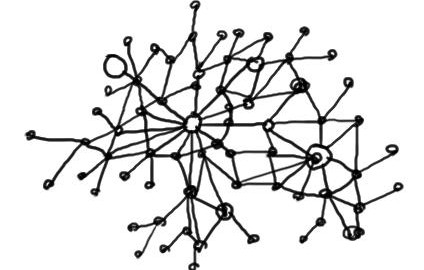My response to the ICT Programme of Study consultation

Note that this is my personal view. But I’ve got my Mozilla hat on half-cocked, as it were. 😉
Context
There’s currently a review of the ICT Programme of Study (PoS) underway in England. Tomorrow (Friday 5th October 2012) is the last day to give feedback on the first version of the draft, with a further chance to comment on the full draft in November and then a public consultation in Spring 2013. The review, commissioned by the Department for Education (DfE), is being organised by the British Computing Society (BCS) and Royal Academy of Engineering (RAEng).
One problem they’re having particular problems with is what to do at Key Stage 4 (KS4) with 14-16 year olds who are doing specialised GCSEs in Computer Science or Information Technology. If that satisfies the statutory requirement then how should the PoS for KS4 be expressed? There’s also the issue of students who don’t take any ICT-related qualifications at KS4 currently being forced to take a token course.
The points around which feedback is currently sought are:
- What to do with KS4 (see above)
- Other strategic issues
- Personal vision for success in 2016 – what would you see in ICT lessons from KS1 (5-7 year olds) through KS2 (8-11), KS3 (11-13) and KS4 (14-6)
One final thing before I dive in: changing the name of the subject from ICT (‘Information and Communications Technologies’) to anything else would require primary legislation. In other words, it’s not going to happen. As a result, three strands have been proposed in the RAEng report from earlier this year. I quote them verbatim:
- Computer Science (CS) is the subject discipline that studies how computer systems work, how they are constructed and programmed, and the fundamental principles of information and computation, in both artificial and natural information processing systems.
- Information Technology (IT) covers the use and application of computer systems including the Internet, to develop technological solutions purposefully and creatively.
- Digital Literacy (DL) provides a critical understanding of technology’s impact on society and the individual, including privacy, responsible use, legal and ethical issues
My response
As someone who worked in English schools for seven years (teaching some ICT), have subsequently worked in Higher Education with JISC and now work for an IT company (Mozilla) I feel qualified to weigh in on this consultation. I also have an interest as a parent to young children whom these reforms will potentially affect. Finally, I wrote my doctoral thesis on the topic of digital literacies.
I’m happy that the three strands of CS, IT and DL have been proposed, and delighted that the definition of DL proposed involves “a critical understanding of technology’s impact”. I’m also pleased that there’s a specific recognition of the creative use of ICT and a recognition of the value of everyone knowing enough code to be able to tinker.
I do, however, have five specific recommendations:
- That the use of ‘Digital Literacy’ be replaced with ‘Digital Literacies’ to recognise the multiple literacies required to be effective in the digital world. For example, web literacies (which I’m currently working on for Mozilla) can be seen as a subset of digital literacies. I go into much more detail on this in my thesis and it also reflects current thinking in the area of New Literacies.
- That DL (pluralised) should form the majority of the statutory PoS for ICT at KS4 – and that those who wish to specialise in CS and/or IT be given the chance to do so through discrete GCSEs.
- That ICT be linked explicitly to English Baccalaureate (EBacc) subjects in order to raise the status of the subject as well as suffuse those subjects with the excitement and creativity that ICT can bring.
- That specific mention be made of the collaborative and emancipatory power of the web. Learning HTML, CSS and Javascript could fall within the realm of DL (pluralised) and provide a coherent route to CS at KS4. See Mozilla’s Webmaker programme for more information.
- That specific mention be made of the burgeoning work around Digital Making by organisations such as Nesta and the Nominet Trust, and that such language (of ‘digital makers’ and ‘digital making’) be included in the ICT PoS from KS1 to KS4.
I’d love any to hear any other ideas you have in the comments!
Image CC BY dgray_xplane

http://www.guardian.co.uk/politics/2012/oct/05/michael-gove-next-tory-leader. This article shows that, and as you have maybe said Mr G’s agenda is elsewhere and until we see the next leader’s colours in this area I imagine you will only get this one useful comment on this topic.
Thanks Paul – I hadn’t seen that article. Scary times. 😮
Wouldn’t disagree with anything that you have said here Doug at all. I’m feeling quite mixed about all this as I’m leaving the UK education system at Christmas and going over to New Zealand to continue my career. Interesting enough they do recognise ‘Digital Technologies’ (pluralised)
Thanks Dominic – is that, though, in the same way that we recognise ‘Information Communications Technology’?
Interesting Doug. Agree that DL is important emphasis. I’d quibble over the pluralisation point; sorting out the KS4 issue is important and this model can help with that; on the eBacc idea, I think it should be expressed the other way around: the other subjects can at last help to make ICT exciting and purposeful!; I’d also quibble about the explicit reference to emancipation – this is covered by the “critical understanding” rubric which surely is about seeing both the emancipation and the oppression that the web can bring? Finally Digital Making is very interesting – I like that idea, though it may need to be promoted because a little unfamiliar.